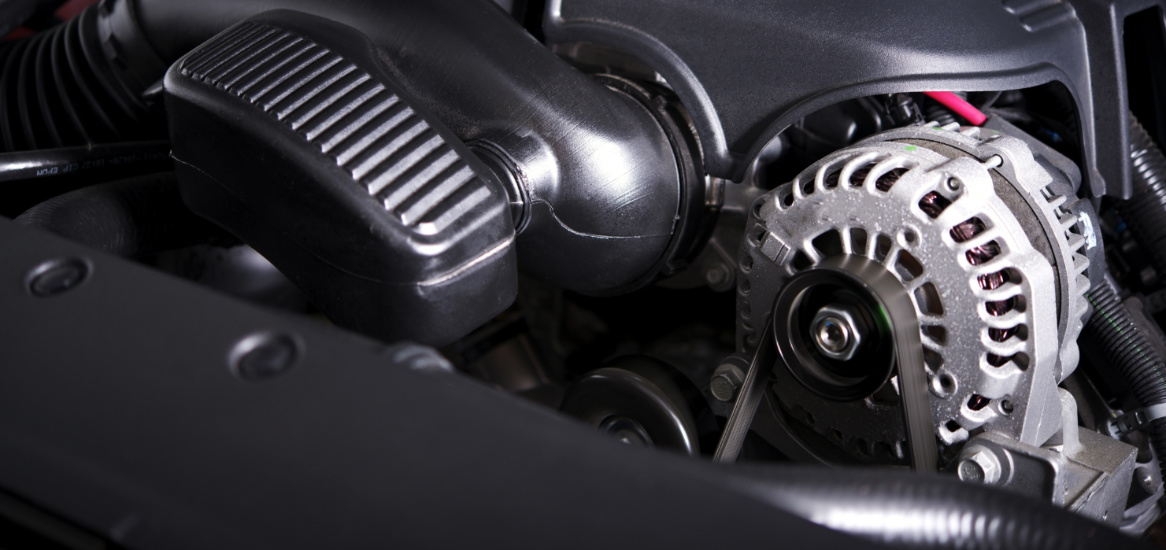How much does a replacement alternator cost?

How much does an alternator replacement cost?
Depending on where you work, a new alternator will cost between $300 and $500 total, including parts and labor.
Installing a new alternator is a relatively simple task, but it must be done right. Otherwise, the alternator may burn out and have to be replaced soon. Knowing the cost of replacements in various locations can help you decide which is best.
If you have the dealer do it:
If you want the best service and want to make sure everything matches your vehicle’s specs exactly, getting a new alternator at the dealer can be a good option. Generally, expect to pay around $500 or a little more in both parts and labor at the dealer.
However, if the vehicle is still under warranty, a new alternator may be warranted and you don’t have to worry about the cost of it. However, keep in mind that your alternator is likely not covered by your powertrain warranty and should be covered by a valid factory limited warranty for a short period of time.
If using a third party mechanic:
If you want to leave your car with a third party mechanic, it might be a little cheaper than taking it to the dealer. He expects the alternator replacement to cost him $300 to $400, depending on how the car and the alternator fail.
However, if you hire a third party mechanic, make sure you get a new alternator, not a refurbished one. Some shops try to use refurbished parts to save costs, but you want to make sure you get what you pay for.
DIY:
You can save a lot of money if you want to replace the alternator yourself. Most alternators cost between $100 and $350 a piece and the tools required are fairly simple.
That said, proper belt tension and careful handling of connecting cables is very important. If you’re not completely sure you can do your job correctly, it’s best to get a professional to do it for you.
what does the alternator do?
Essentially, it perpetuates the cycle of mechanical and electrical energy and helps keep all the components of the vehicle in operation.
If the alternator is faulty, driving the car will not charge the battery. This is why one of the main signs of a bad alternator is the need for frequent jump starts.
A failing alternator can cause your car’s battery to die, electrical components to fail, or engine cooling problems.
One of the alternator’s other main functions is to generate and convert alternating current to direct current to charge the vehicle’s battery. This is done by a stator and rotor within the alternator, which rotate to produce electromagnetic energy.
Vehicles are equipped with batteries, but they cannot generate enough electrical energy for all of the vehicle’s various components.
Modern cars have many parts that rely on electrical energy, the alternator receives voltage from the battery and uses the mechanical energy of the engine to amplify the voltage.
Your vehicle has a series of complex systems that keep the engine running and power all the various components. Failure of any of these systems can lead to all sorts of problems. This is especially true when it comes to a vehicle’s electrical system, the alternator being one of its most important components. A bad alternator can cause a variety of problems, some of which can be very serious.
Alternator replacement costs vary, but it’s helpful to know the range of prices and how to determine them. Knowing some of the signs that your car’s alternator is failing can help you determine if it’s time to replace it. With a good understanding of what an alternator does and how much it will cost to install a new one, you will be prepared.
What are the signs of a failing alternator?
Before deciding whether you need a new alternator, it is important to determine if it is the cause of the problem. Some problems may occur elsewhere, but there are some tell-tale signs that your alternator is failing. Knowing what these signs are can help you know if it’s time to start considering a replacement.
Normal battery dead:
One of the most common signs of a bad alternator is a constantly draining battery or frequent jump starts. Part of the alternator’s purpose is to use the mechanical and chemical energy of the engine to produce electricity to charge the battery. All the energy used when starting the car comes from the battery, which cannot produce enough voltage for the starter if it is not charged. The alternator is a major part of the charging system, and frequent battery problems mean the alternator is not doing its job.
In some cases, the battery can die for other reasons, such as leaving the lights on or being overexposed to heat or cold. A sure way to tell is to drive the car a few miles after jump starting. It takes time for the vehicle’s electrical system to charge the battery, and if the alternator is failing, it will not charge at all. If the car does not start again after driving for a while, this is a sure sign that the battery is not properly charged.
Electrical problem:
Problems with the vehicle’s electrical system other than the battery are also good indicators of a problem with the alternator. Automotive electrical systems are complex and require large amounts of energy to operate smoothly.
A warning light, such as the battery light, may appear if the alternator is not producing enough power. Any kind of malfunction of electrical components can be a symptom of a bad alternator.
Some accessories may not work properly if the alternator is faulty. This includes everything from power windows to power steering that require electrical energy to operate properly. We highly recommend taking your car to a repair shop as soon as you notice these problems.
Problems with Serpentine Belts:
A car’s serpentine belt is responsible for running several components, including the air conditioner, but its main purpose is to run the alternator. This is essentially a drive belt that comes off the engine pulley and rotates the alternator pulley. If your alternator is stuck or has any sort of blockage, you may notice something wrong with the serpentine belt.
One of the main signs that the alternator is causing serpentine belt problems is a squeak or squeal coming from the engine compartment. Usually this means the belt is slightly loose, but it can also mean that the alternator pulley is stuck.
This can break the belt and cause problems with engine cooling and other critical processes. A new or rebuilt alternator ensures that the belt can move freely and that the car’s electrical system receives the power it needs.
What determines the price of a new alternator?
Not all alternator replacements cost the same amount. There are several factors that determine the replacement price, and your car may have parts that are more expensive than others. Knowing some of the factors that determine the cost of a new alternator can help you prepare for it.
Vehicle type:
The type of vehicle you own is a big factor when it comes to the cost of installing a new alternator. Some electrical systems require more amperage than others, so replacement costs are higher if you need a larger, more powerful alternator.
In general, the bigger the engine, the more expensive it will be to replace the alternator. For example, if you have a truck with a V8 engine and a number of accessories that require a lot of amperage, you can expect to spend more than the average cost of a new alternator.
OEM and Aftermarket:
When replacing a component on your vehicle, you must decide whether to get the part from an OEM parts manufacturer, also known as OEM, or to get an aftermarket part. Sometimes it’s worth using aftermarket parts for small things.
However, for critical components like alternators, it’s almost always better to get the OEM version. OEM versions are more expensive, but you can be assured that they are compatible and produce and output the right amount of power.
Labor cost:
Labor costs are a major consideration when performing auto repairs. Installing a new alternator is usually not very labor intensive, but each car is designed differently and some make more effort than others, resulting in a higher repair bill. .
Depending on where you live, labor costs may be higher than others. Knowing the typical labor costs at the store you’re going to will help you decide if it’s the right decision for this particular job.
Final Thoughts:
It is essential to ensure that the vehicle’s electrical system is fully functional. When your car’s alternator fails, it can cause failures throughout your car. Depending on the type of car and its electrical demand, it can also cause serious damage to the engine and transmission. Knowing how much an alternator replacement will cost and what the job entails will help you prioritize your alternator so you are prepared when it comes time to buy a new one.
https://www.autolist.com/guides/replacement-alternator-cost How much does a replacement alternator cost?




